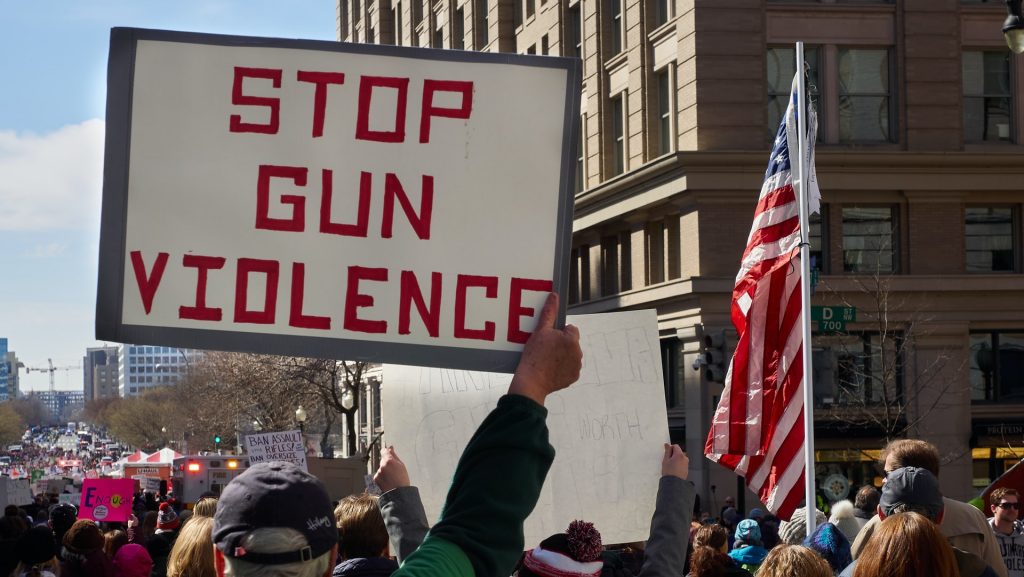Gun safety laws help to reduce gun violence, advocates say
Anelle Scott June 26, 2024Michigan had over 1,500 firearm deaths in 2022, according to the Center for Disease Control.

Last week, Gov. Gretchen Whitmer created a Gun Violence Prevention Task Force with the goal of decreasing gun-related incidents in Michigan. But what are the limitations groups like this face when it comes to gun violence?
Just this month, the U.S. Supreme Court issued a ruling prohibiting the ban on bump stocks, attachments that allow semi-automatic rifles to fire bullets at rates similar to fully automatic machine guns. It’s the latest example of how the court’s interpretation of the Second Amendment can have a chilling effect on state and local governments.
Michigan had over 1,500 firearm deaths in 2022, according to the Center for Disease Control. The CDC also reports unintentional injury is the fourth leading cause of death among infants in the U.S., and is the top cause of death among children and adolescents aged 1–17 years; with firearms the leading cause of injuries.
Last year — two months after the shooting at Michigan State University and two years after the mass shooting at Oxford High School, Michigan lawmakers passed sweeping legislation to combat gun violence. The 11-bill package requires all people purchasing guns to undergo a background check and require safe storage.
Esther Sanchez-Gomez, litigation director for Giffords Law Center to Prevent Gun Violence, joined The Metro on Tuesday to discuss how much leeway states have when it comes to regulating guns and the laws and policies that make the biggest impact on gun violence in our communities.
Lt. Mike Shaw, public information officer for the Michigan State Police, also joined the conversation to provide insight regarding the legislation passed in Michigan to limit gun violence.
While gun safety is important to limit mass gun violence, Sanchez-Gomez says, mass violence incidents are actually a very small percentage of the gun violence incidents we see in the country every day.
“Community violence intervention programs target communities most affected by day-to-day gun violence, and they do not implicate the Second Amendment at all.” Sanchez-Gomez said, “So that funding that goes to these programs is hugely important that interrupting cycles of violence that we’ve seen day-to-day and is hugely impactful for reducing the kind of gun violence that maybe doesn’t make news, but it is contributing to the gun violence epidemic that we see in this country.”
Shaw brought attention to the state storage law, which will prosecute a gun owner if there are gun injuries due to a gun owner not locking up a gun safely.
“Those are tough decisions, tough conversations to have,” he said. “But those are things that you need to really think about. Because after it happens, it’s too late. And you either lost your child or they’re severely injured or something else happened and it’s too late for that conversation.”
Shaw also mentioned the Red Flag Law, which is an extreme risk protection order act that allows certain people to request a restriction on an individual from buying or possessing a firearm. This law will continue to ensure people will have the ability to restrict people who should not have access to guns and will have them seized if it proves to be a danger.
